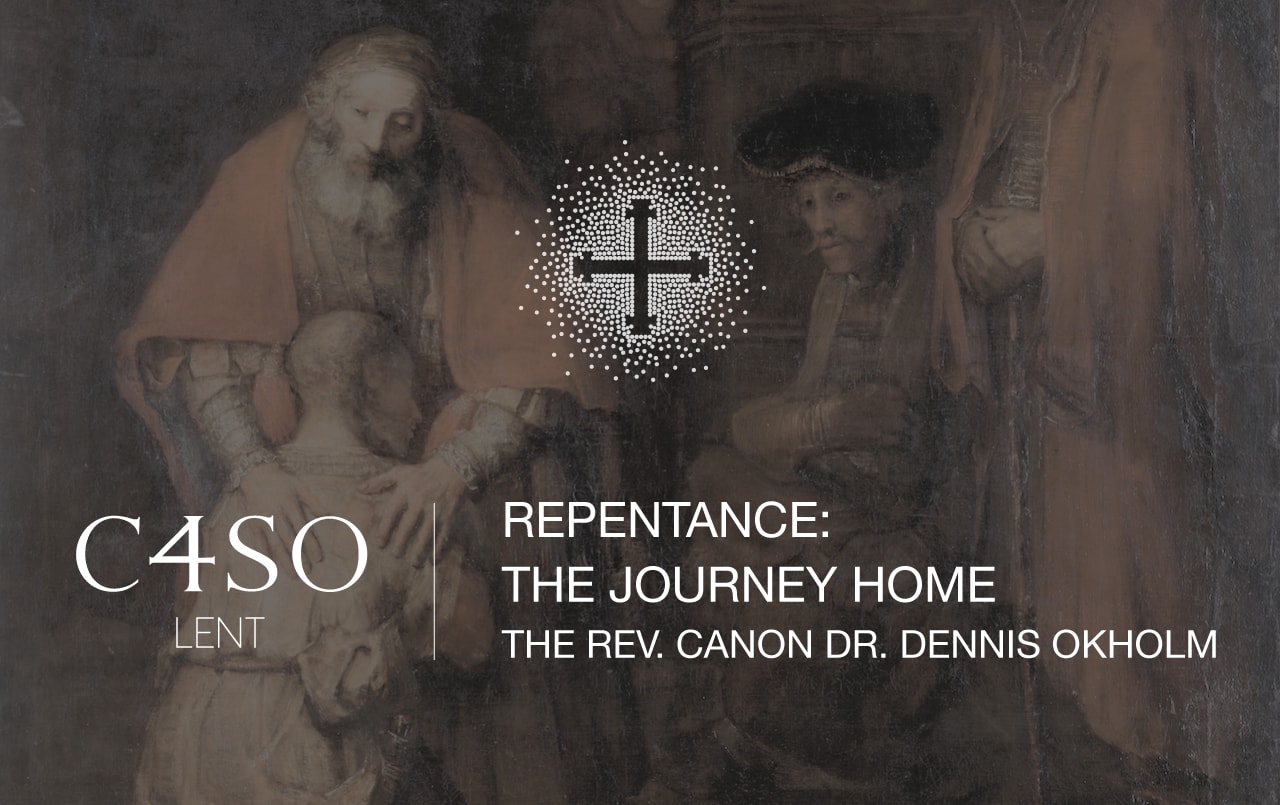By the Rev. Canon Dr. Dennis Okholm
Sometimes on the street corner near the university where I teach a man will be holding a sign telling passersby to “Repent!” At other times we see two or three on the boardwalk at the beach holding signs with the same message. These are like the bumper stickers that remind people following behind that the car ahead will suddenly be driverless if the rapture takes place.
What’s missing from the tone of voice conveyed by the signs is the covenantal context of the biblical summons to repent. We hear that context every week in our prayer of confession as we begin with the address, “Most merciful God….” It is the same context of which we are reminded in Isaiah 55 when God reminds his people that his thoughts are not our thoughts because, while we seek to avenge a wrong committed against us, the God who made a promise to his people will keep it and show mercy even when he is wronged.
But it is the merciful God who would hold the sign “Repent!” To put this another way, one of the important lessons I have learned from John Calvin is that faith comes before repentance, not after. I had grown up with the wrong sequence, assuming I had to work up my repentance and then believe. But I have learned that it is the overwhelming grace of God’s covenanting forgiveness that has me bending my knees in a posture of confession and repentance.
I like to think of repentance as coming back home to where you have always been loved. Hosea captures this when God tells him to dramatize an object lesson for Israel by seeking his unfaithful wife Gomer to woo her back to their marriage. Jesus teaches this in his parable of the prodigal father who runs to a returning son who had told him to “Drop dead!” and the son cannot even complete his rehearsed confession before the father is announcing the “Welcome back!” party.
There’s a sentimental county music song about a father who is estranged from his daughter but leaves a recorded greeting on his phone: “It doesn’t matter what you’ve done, I still love you. It doesn’t matter where you’ve been, you can still come home.” Friends think the father is foolish for keeping the greeting on the phone for so long, but the father is relentless, and the daughter, in desperation, finally calls, hears the greeting, and says, “I’m coming home.”
That’s the Father to whom we confessthe One who is relentless and waits and has recorded his message in Hosea and Isaiah and parables. Lent is the season when we hear the message that no matter what we have done nor where we have been we can come home. And as outlandish as that sounds to those whose thoughts are not God’s thoughtsmaybe even to the marching signholders, we believe it and fall on our knees and repent. And by the time we get to Easter, once again we’ll have returned to where we began.
The Rev. Canon Dr. Dennis Okholm is a Professor of Theology at Azusa Pacific University and Teaching Pastor at Holy Trinity Anglican Church in Costa Mesa, California. He also serves as one of C4SO’s Canon Theologians. Contact Dennis.

